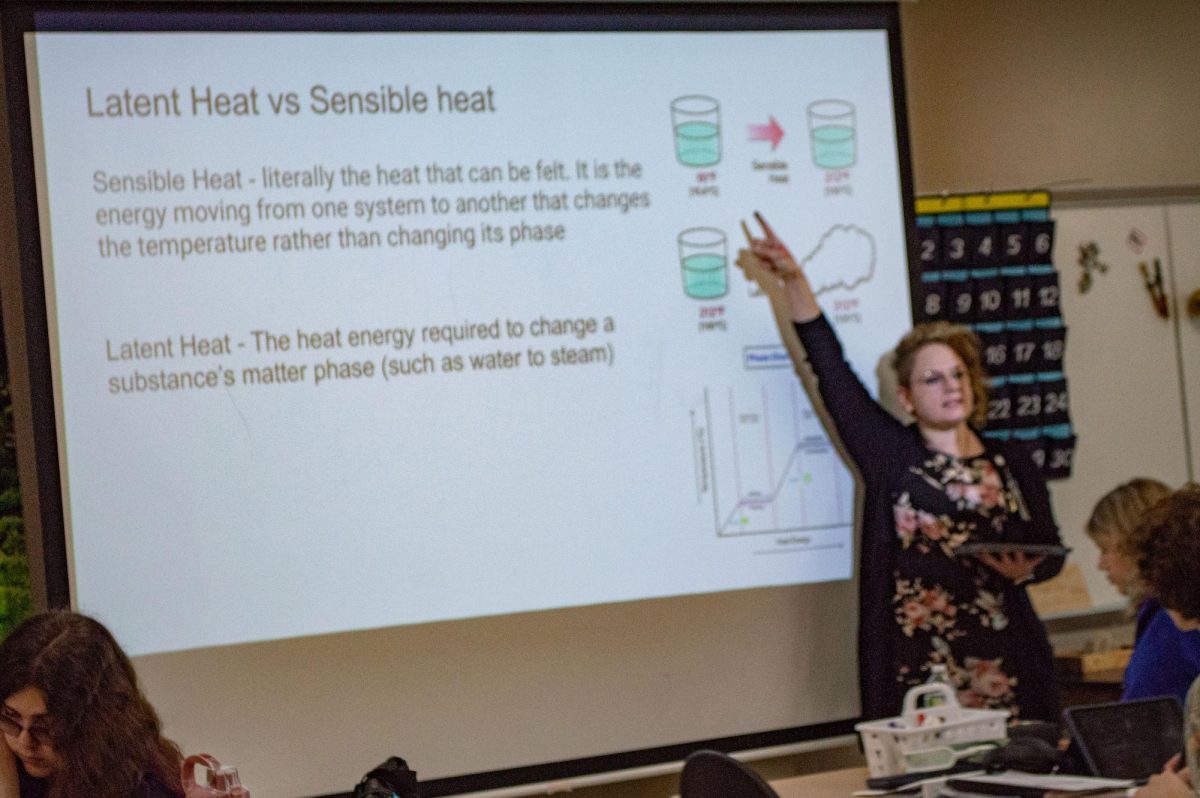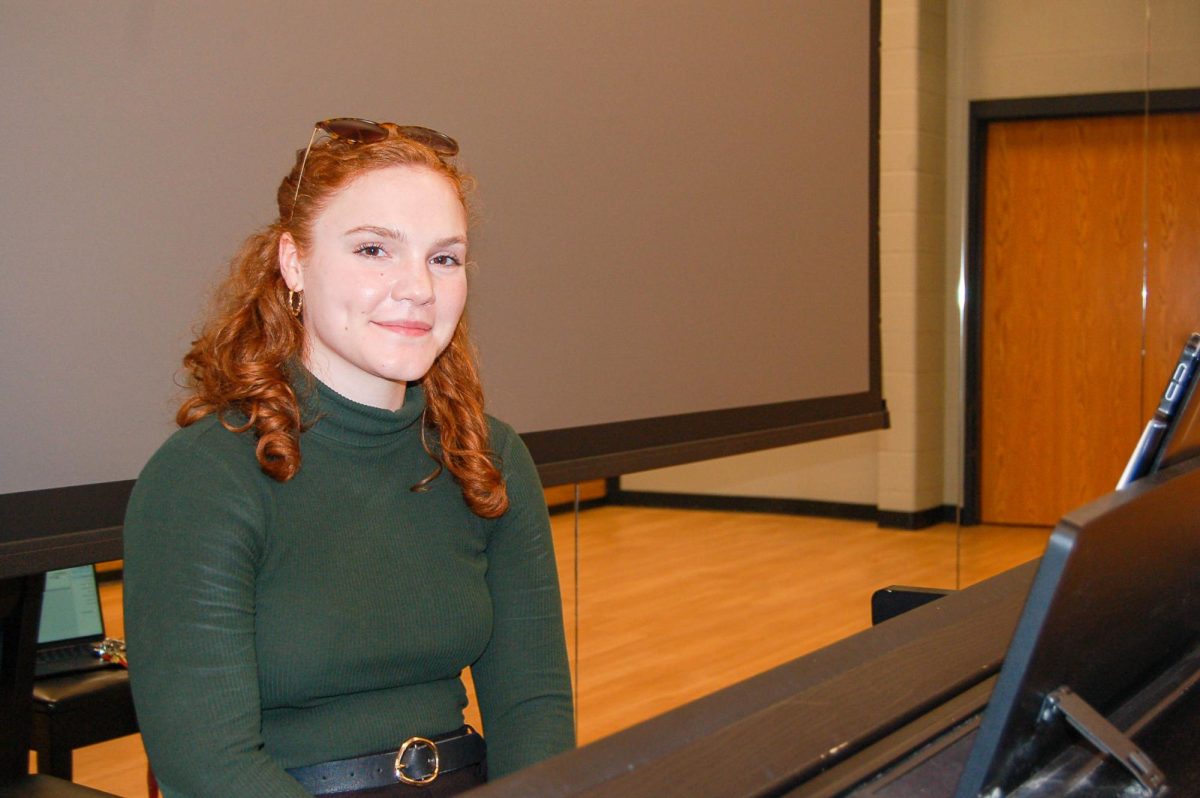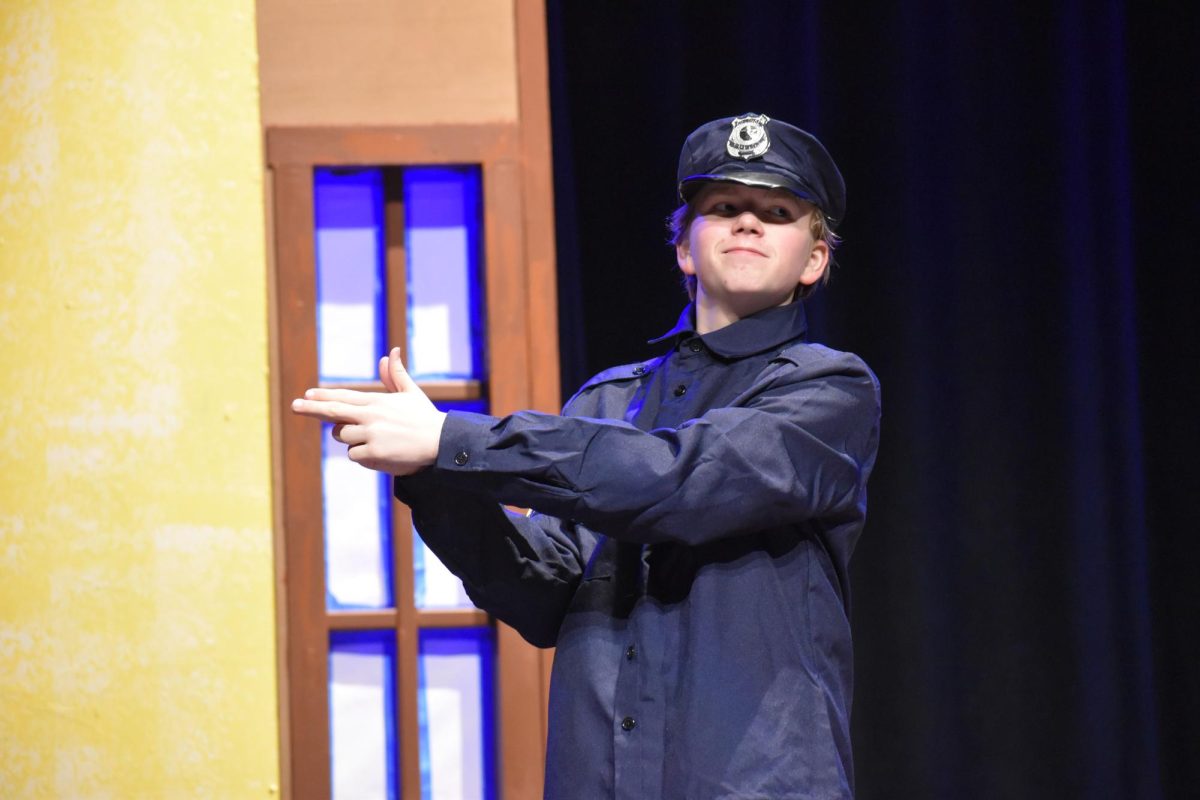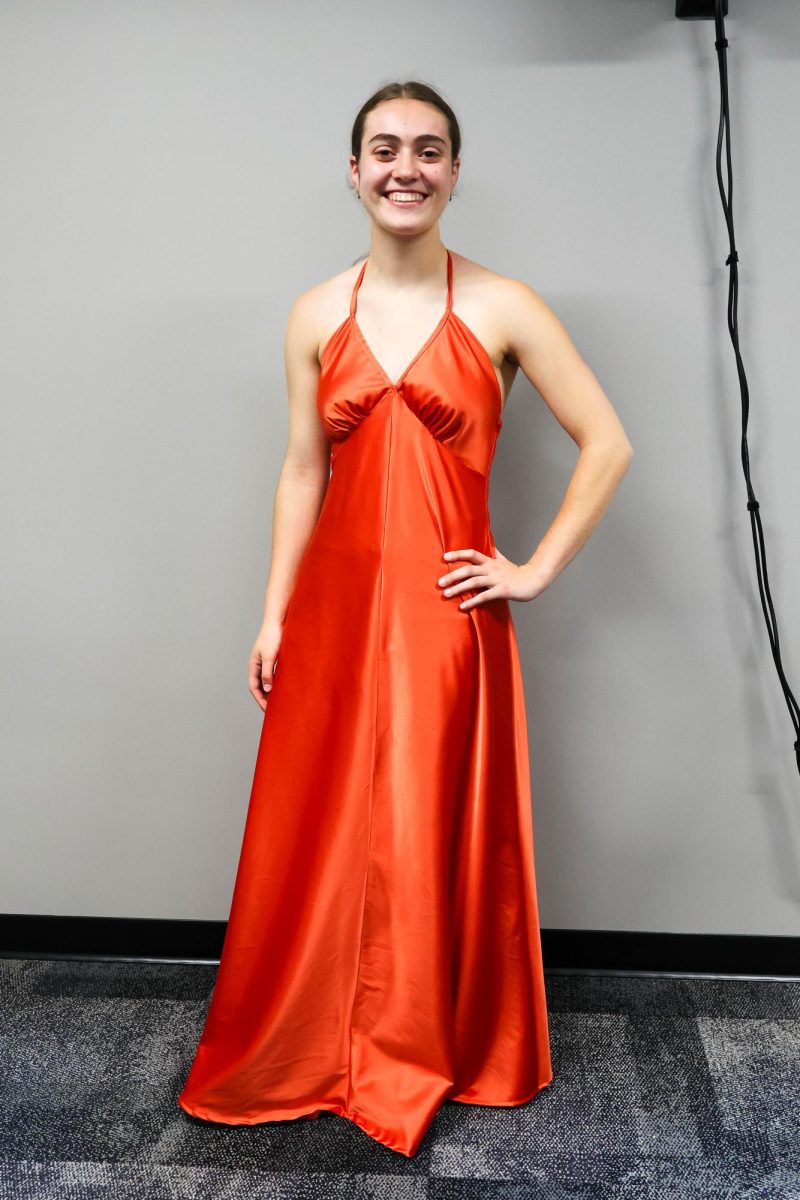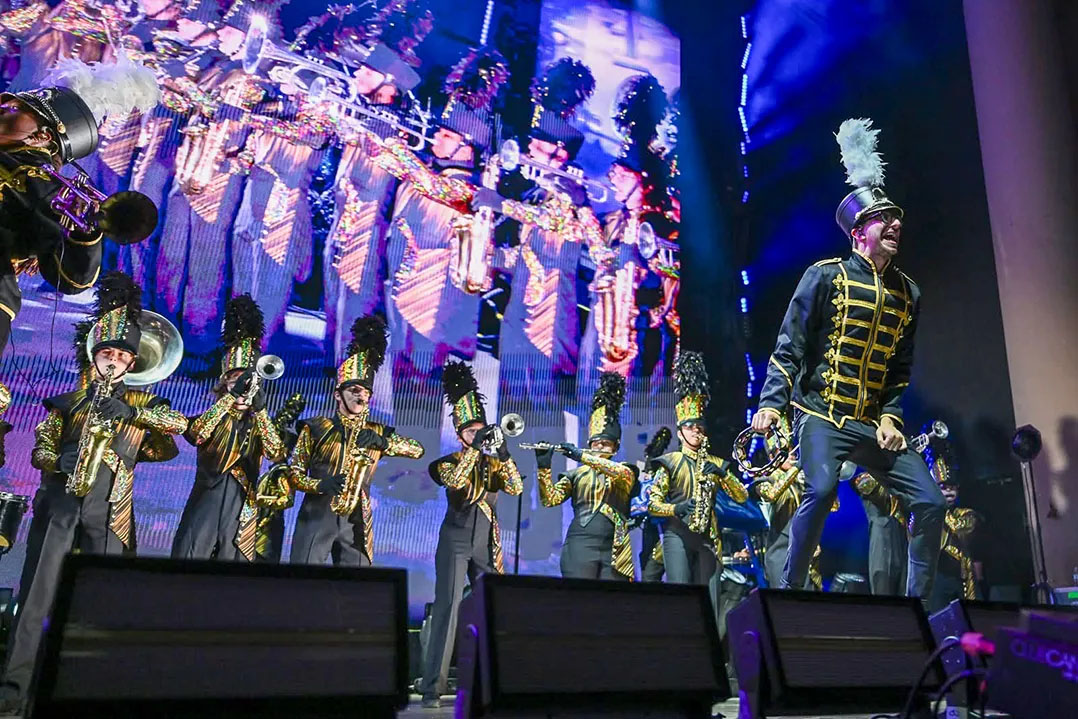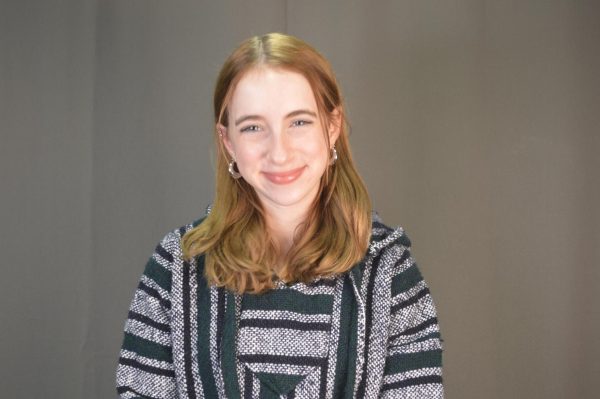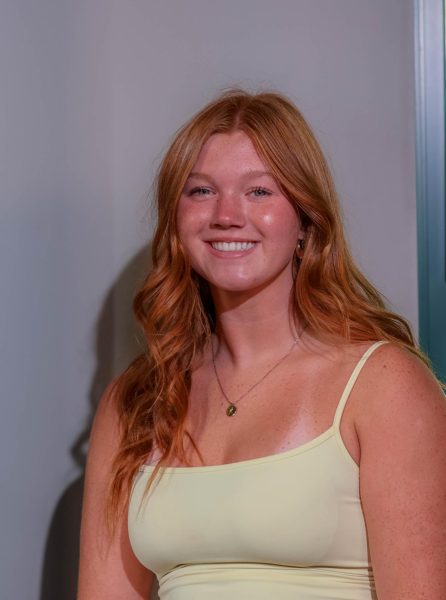Anticipation fills the classroom as students wait for the results of the experiment. Their teacher holds up a glass of milk as the light from the projector shines through the liquid, causing the particles to scatter. The wave lengths shoot through the milk and to the wall, painting the plain tan wall with shades of red. Satisfied with their findings, students now know the process of how a sunset works through their teachers’ demonstration.
The milk demonstration is just one of many labs that students have experienced during their time in the new meteorology class at NHS. The class has given students like senior Tyler Cowan a different approach to science.
“It’s only a semester, so there’s a lot of good material for a short period of time, and you get to learn about fun weather stuff and do fun interactive labs to go along with it,” Cowan said. “I’m not big on science type classes, but it’s very fun and it’s taught by an amazing teacher.”
This teacher, Skylee Shaffer, has a passion for teaching science and is constantly looking for new courses that interest her students. Shaffer also teaches Earth and Space Science, and this year, she began her own meteorology class that she built from the ground up.
“I got my masters in science education but my focus was curriculum and instruction, which means I’m really good and passionate about creating new courses and writing the large-picture curriculum for it. I’m just a passionate teacher,” Shaffer said.
Shaffers’ love of teaching led her to notice that her students wanted more out of the science class. She decided to step up and take it upon herself to teach students what they are interested in learning.
“In Earth and Space Science we cover 20 different topics, and so we can only take about two weeks per topic. [We took a survey and students] said that they were most interested in astronomy and the ‘weather stuff,’ so we made those into two separate classes,” Shaffer said.
The decision was just the start to a new class that offers students a more elaborate look at the different weather patterns that continue to go on around them. Meteorology is not like most of the other science classes at Noblesville. The course gives students the opportunity to look further into weather, whereas unlike other classes that only spend a few weeks on the topic.
“There’s no other science that builds up to meteorology, you just jump in,” Shaffer said. “Meteorology is going to be an intense look at the atmosphere, and the properties of the atmosphere.”
Shaffer says the course will also go over predicting the weather, climate impact on weather, and extreme weather. Diving deeper into this subject allows students to develop a larger understanding of weather than the Earth and Space class could offer. Through that, students will be able to take what they learn in class and apply it to real life situations.
“I think making students and people more aware of how weather works makes them more prepared and educated when they’re watching the Weather Channel or looking at their apps on their iPhones,” Shaffer said.
Being able to interpret these results is one of the many skills students may learn in meteorology. Students such as sophomore Vitaliy Mato are the first to experience this new class, which he believes can be nerve-racking but an exciting new learning opportunity.
“I’m just really curious about meteorology from the start, and I just really love natural sciences. It really got me interested in taking it,” said Mato.
When he finishes high school, Mato plans on going into theoretical physics. He said he can apply some of the knowledge he gains from meteorology into his future college path.
“If you really want to go into natural science—if you really want to pursue that kind of route—then this is the class for you,” Mato said.



